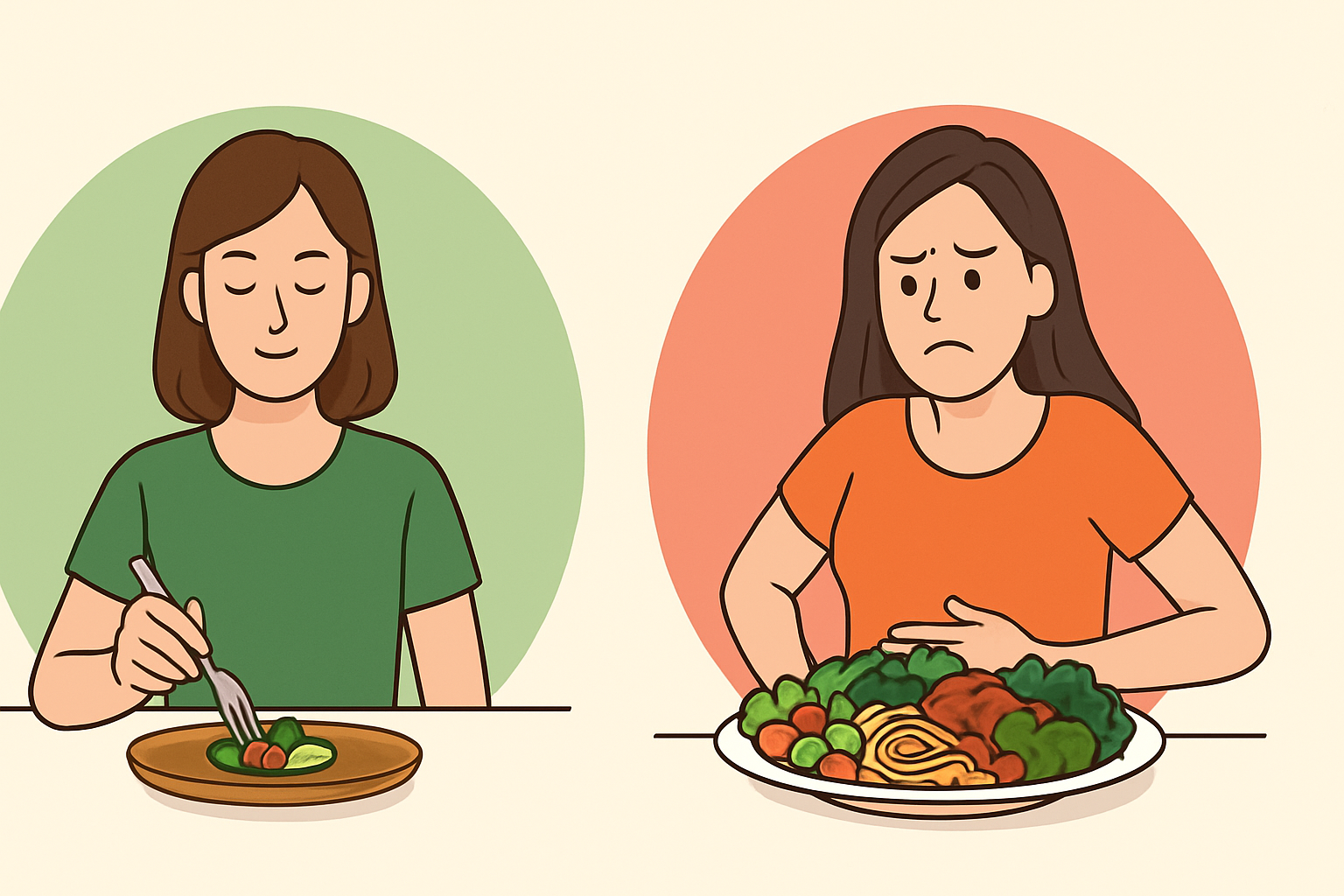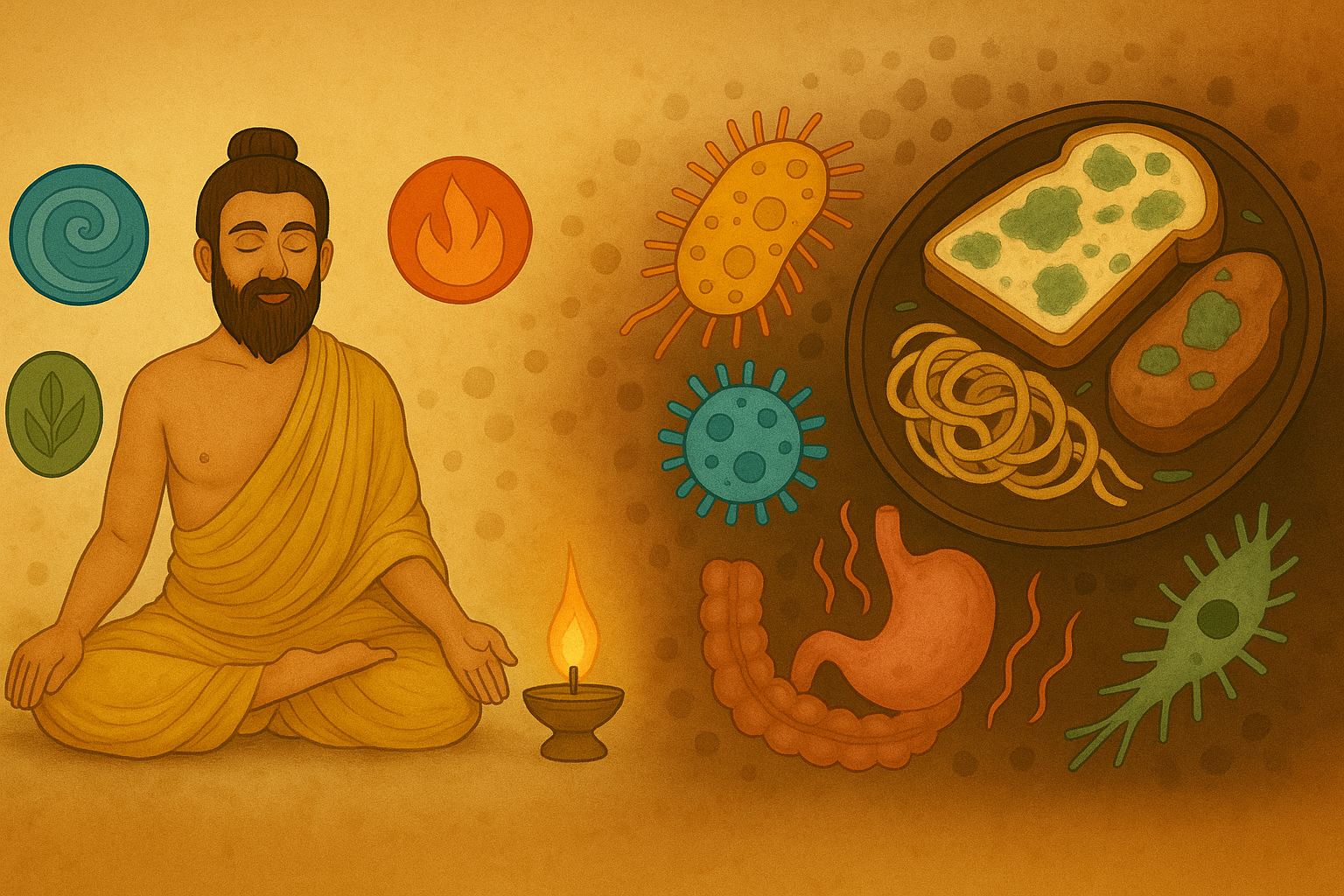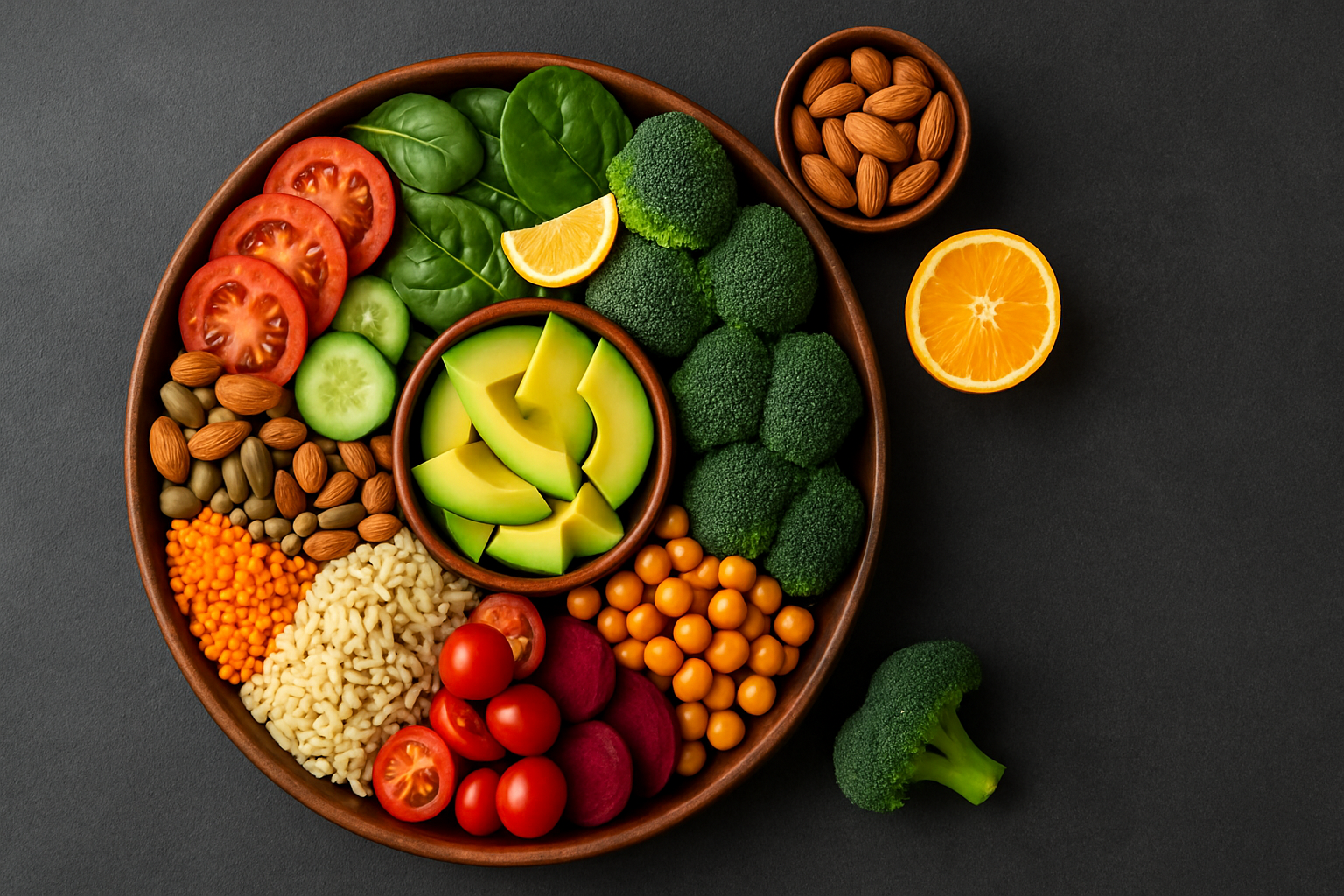Digestion is a complex physiological process that breaks down food into nutrients, which the body can absorb and utilize for energy, growth, and repair. The efficiency and effectiveness of digestion can be influenced by various factors, including portion size.
Both large and small portion sizes can have different effects on digestion.
However, I suggest eating small portions and eating only to 80% capacity, so that there is space for the churning and mixing of food with the acids, no unrest in the stomach and no burden for digestion.
Eating large portions of food can put a significant burden on the digestive system. When you consume a large meal, the stomach has to stretch to accommodate the volume of food. This stretching can trigger feelings of discomfort and fullness and can cause pressure in the abdomen.
If the stomach is overloaded with food, it can also cause bloating, discomfort, and indigestion.
Smaller portions allow for more efficient digestion and better nutrient absorption. Eating small portions can enhance the nutritive value being absorbed and assimilated from the food.
When the stomach is not overloaded, it can more effectively mix the food with digestive juices and enzymes, facilitating the breakdown of nutrients. This leads to a smoother digestion and absorption of nutrients, and less chances of digestive issues such as gas, constipation, and diarrhoea.
Large portions can strain the digestive organs and slow down the rate of digestion. This can result in food spending more time in the digestive tract, taking longer to empty from the stomach into the small intestine. This increases the risk of fermentation, gas production, and bacterial overgrowth and can cause digestive issues such as constipation or diarrhoea.
Large meals can slow down the movement of food through the digestive tract. The delay in gastric emptying can prolong the digestion process and cause feelings of heaviness and sluggishness after eating. Large portions become a great difficulty for elimination of toxins especially the bowel movements. With a backlog of bowel movements, harboured toxins keep growing and can create serious diseases.
When you eat large meals, especially those high in refined carbohydrates, blood sugar levels can spike, leading to insulin spikes and subsequent crashes.
By consuming smaller portions, you provide a steady supply of nutrients to the body, which can help regulate blood sugar levels and prevent energy fluctuations.
Large meals can often cause acid reflux or gastroesophageal reflux disease (GERD). When the stomach is overly full, it can put pressure on the lower esophageal sphincter, the muscle that normally prevents stomach contents from flowing back into the oesophagus. This pressure can cause stomach acid to reflux into the oesophagus, leading to heartburn, regurgitation, and discomfort.
Smaller portion size means eating consciously, paying attention to hunger and fullness cues and also be able to savour the flavours and textures of food. This leads to a more enjoyable eating experience and a greater appreciation for food.
Large portions of meals can make you age faster as it creates a toxic burden on our entire system and all the organs.
Overall, eating small portions can support better digestion by reducing strain on the digestive organs, promoting more efficient digestion and nutrient absorption, stabilizing blood sugar levels, enhancing feelings of satiety, and therefore, better digestive health.
It is essential to listen to your body, know your portion sizes and determine what works best for you.
























